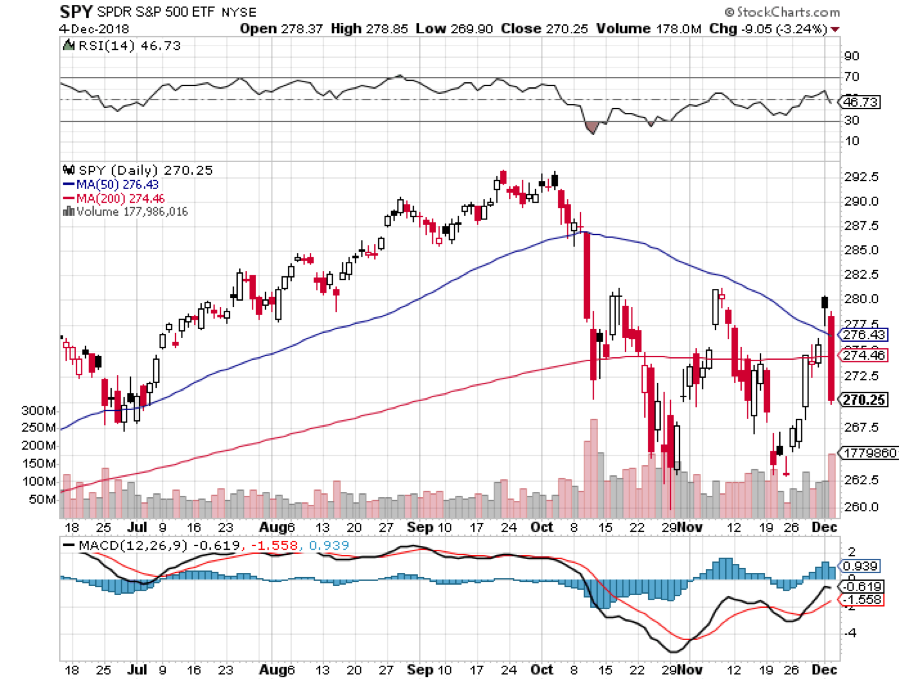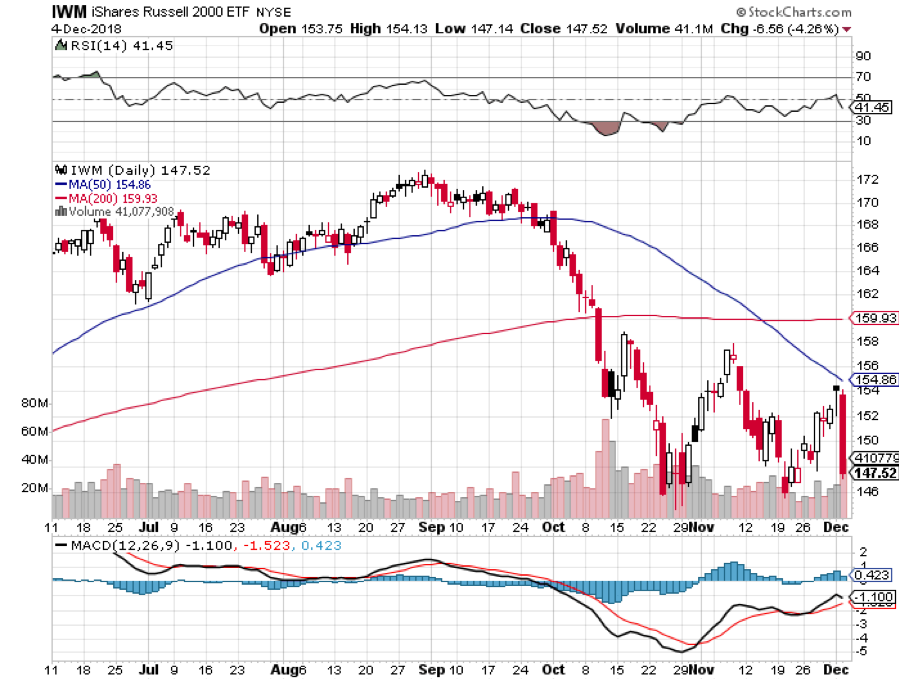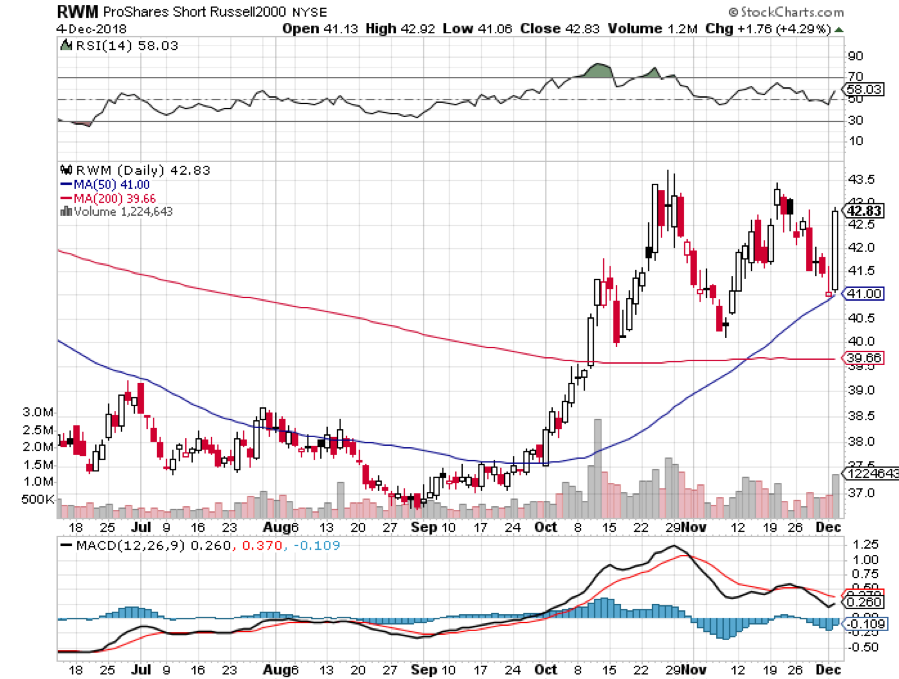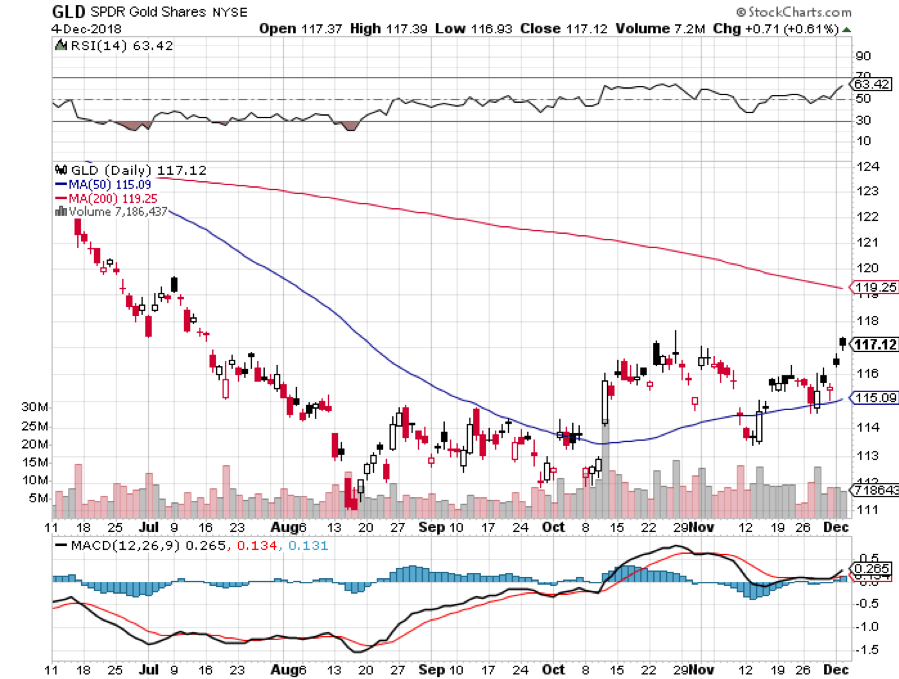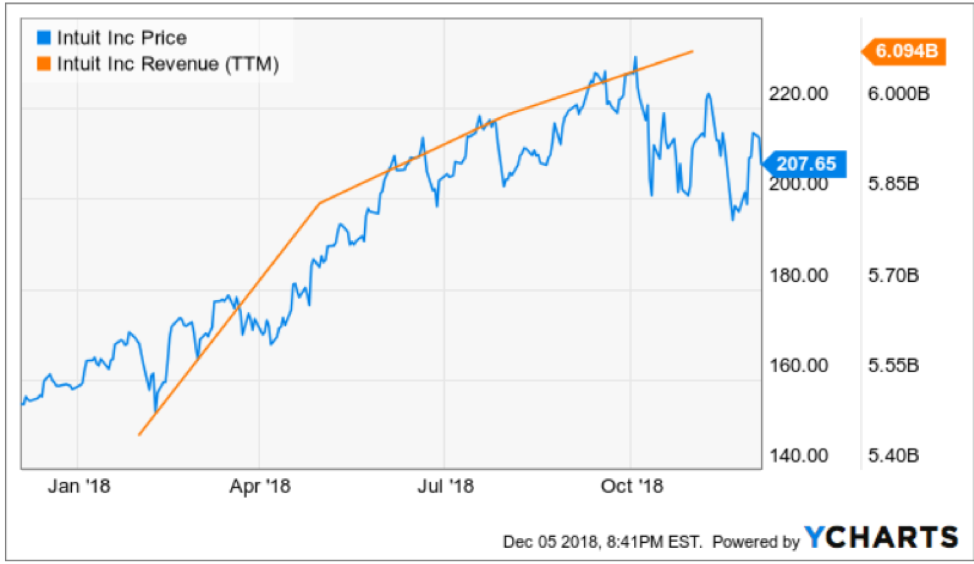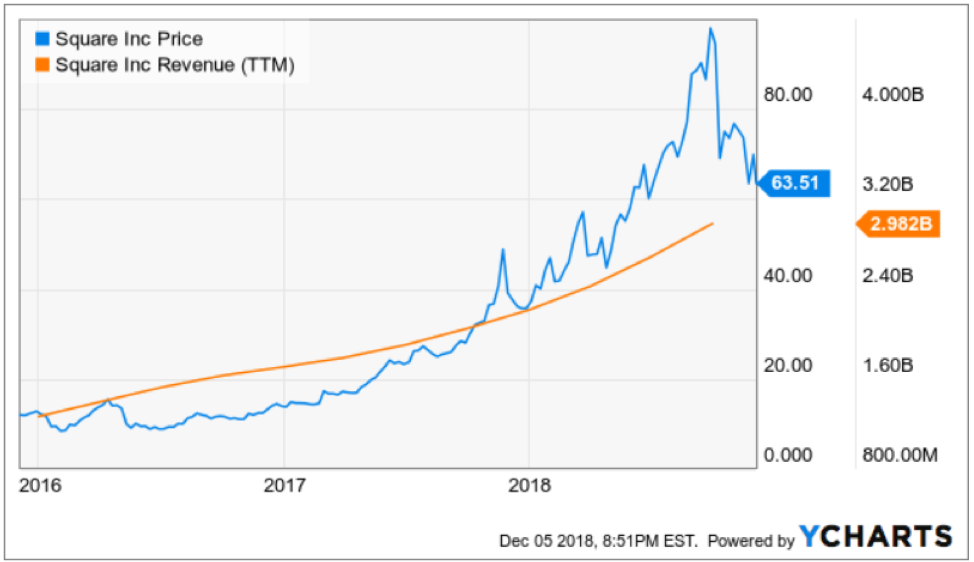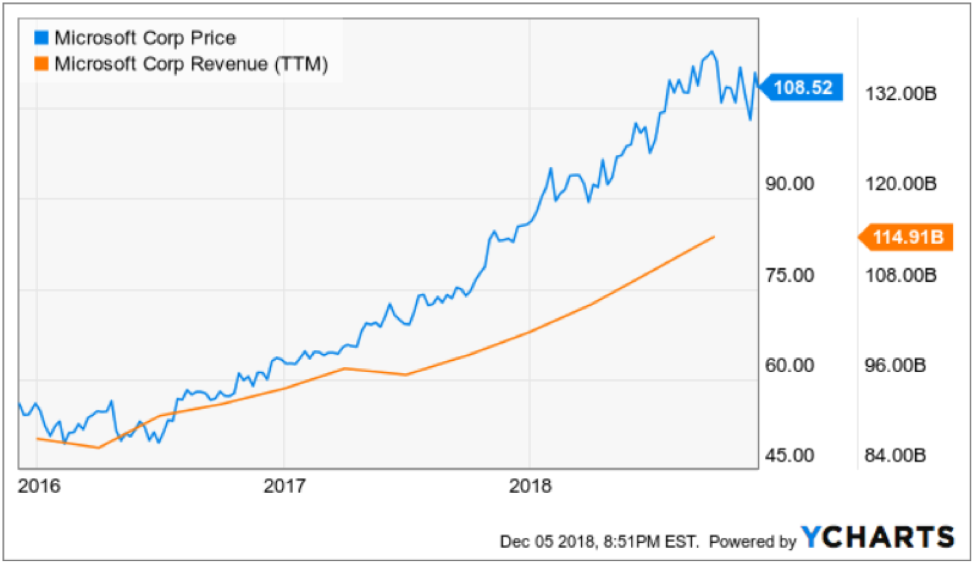While the Diary of a Mad Hedge Fund Trader focuses on investment over a one week to six-month time frame, Mad Day Trader, provided by Bill Davis, will exploit money-making opportunities over a brief ten minute to three-day window. It is ideally suited for day traders, but can also be used by long-term investors to improve market timing for entry and exit points. Read more
Global Market Comments
December 7, 2018
Fiat Lux
Featured Trade:
(WHY TECHNICAL ANALYSIS DOESN’T WORK)
(SPY), (QQQ), (IWM), (VIX),
(TESTIMONIAL)

When John identifies a strategic exit point, he will send you an alert with specific trade information as to what security to sell, when to sell it, and at what price. Most often, it will be to TAKE PROFITS, but, on rare occasions, it will be to exercise a STOP LOSS at a predetermined price to adhere to strict risk management discipline. Read more
While the Diary of a Mad Hedge Fund Trader focuses on investment over a one week to six-month time frame, Mad Day Trader, provided by Bill Davis, will exploit money-making opportunities over a brief ten minute to three day window. It is ideally suited for day traders, but can also be used by long-term investors to improve market timing for entry and exit points. Read more
When John identifies a strategic exit point, he will send you an alert with specific trade information as to what security to sell, when to sell it, and at what price. Most often, it will be to TAKE PROFITS, but, on rare occasions, it will be to exercise a STOP LOSS at a predetermined price to adhere to strict risk management discipline. Read more
While the Diary of a Mad Hedge Fund Trader focuses on investment over a one week to six-month time frame, Mad Day Trader, provided by Bill Davis, will exploit money-making opportunities over a brief ten minute to three-day window. It is ideally suited for day traders, but can also be used by long-term investors to improve market timing for entry and exit points. Read more
Global Market Comments
Global Market Comments
December 6, 2018
Fiat Lux
Featured Trade:
(WHAT TO SELL SHORT ON THE NEXT RALLY)
(IWM), (RWM), (SPY)
(TAKE A RIDE IN THE NEW SHORT JUNK ETF),
(SJB), (JNK), (HYG),
(THE COOLEST TOMBSTONE CONTEST)
As much as you may think I have just gone MAD, I believe it is time to start dipping your toe in on the short side in the stock market on the next major rally.
I want to elaborate on the finer points of the rationale for doing this trade.
Whatever last gasps of the tailwind provided by last year’s tax bill are rapidly being extinguished by an escalating trade war. Just ask anybody in the real estate and auto industries which are already well into recessions.
It has reminded them how high stocks have run and how much now withering unrealized profits are sitting on their books.
The Russell 2000 (IWM) is actually misnamed as it now has only 1,650 stocks.
The rest have disappeared over the years through mergers, privatizations, or bankruptcies, and have not been replaced, as happens quarterly with the S&P 500 (SPY).
For you and me, this means that the (IWM) is more illiquid than the (SPY). When stock markets fall, the (IWM) falls about 1.5 times faster than the (SPY).
In other words, it’s a great short to have in a falling market.
I think stock markets may be starting to either top out or roll over here. The Fed is taking away the punch bowl and the party is ending.
That is especially true of the Russell 2000.
An approaching yearend is a big risk for the markets, as are overstretched valuations and prices.
The warning signs of a selloff are absolutely everywhere but, until now, have been ignored. They show that the normal life of a medium-term topping process is two months.
When will that two months end?
About the end of December, before gigantic deferred tax selling hits the market in January.
Small cap stocks have other problems.
Since they lack the sources of internal finance that the big companies do, they are much more sensitive to the economic cycle.
That makes them much more dependent on a boost from tax cuts.
Large companies don’t pay taxes anyway, so there’s nothing in the tax package for them.
Small caps also are much more dependent on domestic sales than large ones.
They lack the financing and the sophistication to create elaborate offshore structure to minimize their tax bill.
So any developments that threaten to dilute or derail tax cuts will hit small companies much greater than big ones.
Another way to play this is to buy the ProShares Short Russell 2000 ETF (RWM), a bet that small cap stocks will fall.
If you are looking for other ways to hedge your portfolios, you might consider the Trade Alert I also sent yesterday to buy gold (GLD). The last stock meltdown finally delivered some serious moves up in the barbarous relic.
Look at the chart below for the barbarous relic and you see that we have a sideways triangle formation setting up over the past month that will be a nice springboard for a sudden move upward.
All we need is one more escalation of the trade war with China which, these days, seem to be coming out of the woodwork.
Sell short the Russell 2000.
Mad Hedge Technology Letter
December 6, 2018
Fiat Lux
Featured Trade:
(A BIG ESCALATION OF THE TRADE WAR)
(INTU), (MSFT), (HUAWEI), (SQ), (ABDE)
CFO of Huawei Meng Wanzhou was arrested transiting in Vancouver and is facing extradition to the United States to face the accusation that she violated sanctions against Iran.
This doesn’t help calm the nerves of tech investors. Not at all.
Wanzhou is the daughter of Founder and President of Huawei Ren Zhengfei who springboarded to success after his close ties to the People’s Liberation Army helped propel his career in technology when Shenzhen opened up its economy in the 1980s.
He has never looked back since then developing Huawei into one of the key cogs of the global telecommunications infrastructure.
Huawei’s rapid ascent has been the defacto Achilles heel between the United States and Chinese tech relations gone sour.
China is hell-bent on dominating 5G and beyond, and the Chinese communist views Huawei as a critical component to executing this vision.
That being said, there are plenty of tech stories out there that are worth a look irrespective of the macro headaches.
In a time like this, avoiding China-themed tech stocks would offset some volatility as shares have been on a rollercoaster because of issues unrelated to the companies themselves.
Software companies with income streams closely linked to domestic revenue is a trope that I have recommended and will outperform the pure tech growth stocks in 2019.
A company that epitomizes these traits is Intuit (INTU). The problem with it is that it is too expensive right now as well as having growth-related road bumps.
Intuit is a company your family tax accountant loves and hates.
It is a financial software taking care of financial, accounting, and tax preparation for small businesses, accountants, and individuals.
The company is headquartered in Mountain View, California.
The bulk of its revenues derive from operations within the United States and that is music to my ears right now in this climate.
Intuit also owns TurboTax which is one of the most popular domestic income tax preparation software packages in the United States.
Quickbooks Online, another type of accounting software owned by Intuit, is the firm’s bread and butter product and expanded over 40% YOY.
Even with this premium growth, the small business unit was only able to grow 11% YOY.
Quickbooks Online now has 3.6 million subscribers demonstrating the large scope of its business.
Through feast or famine, people will always need accounting and financial software even with a fractious global trade war threatening to topple global trade.
This software stock will provide stable earnings and reliable profits because of its defensive nature.
However, its 3-year revenue growth of 12% is not what premium tech companies produce. Intuit needs to ramp up its revenue drive and I believe the changing of CEO from old hand Brad Smith to his hand-picked successor Sasan Goodarzi will do the trick.
Goodarzi has indicated that he intends to migrate up the value chain into the mid-tier business revenue stream hoping to land some notable deals.
His immediate job is to identify a solution to help accelerate the firm’s top-line growth again.
The addressable market is massive, and Intuit isn’t capitalizing on its position with smaller companies, leaving the opportunity to upsell more advanced software to customers on the table.
The alarm bells should be ringing.
Intuit requires an upgrade in its software strategy in an evolve-or-die tech climate.
Nurturing small business customers is part and parcel to adopting a legitimate growth strategy as the status quo moving forward.
Weeding out one’s core customer base is a kamikaze mission.
If Intuit nails this transition, then new income streams will open up while retaining old customers.
That being said, Intuit is still a good company and could become a great company if they want to.
They even have a dividend yield of 0.8%.
Intuit is an incredibly profitable company and has increased their 3-year EPS growth rate to 27%, presiding over high-profit margins of 33%.
Financial products which include financial software are incredibly sticky and I would lump accounting software into that group too.
Accountants do not fancy switching over accounting software every year and risk fudging the numbers.
The company has made around $1 billion in profits the past three years and annual revenue has steadily climbed from $4.19 billion in 2015 to $5.96 billion in 2018.
Management indicated that 2019 revenue will come in around $6.5 to $6.6 billion, a jump of around 8-10%.
In my books, 8-10% of a company of this ilk isn’t good enough.
I am hoping new management will roll out the Microsoft (MSFT) playbook which focused on its subscription as a service (SaaS) revenue stream and reaped the untold rewards.
Intuit needs to wean itself from selling packaged products.
And the 11% growth in last season's earnings report was a pitiful deceleration from 17% the year before.
It is clear that management has not pumped enough juice out of this baby and fresh blood should invigorate management at the top level.
Highlighting the attractive possibilities to grow the existing user base is the uptick in self-employed subscribers within QuickBooks online surging to around 745,000 from 425,000 YOY.
Cross-selling to this existing subscriber base would increase average revenue per user.
On a sour note, strength isn’t happening across the board with the desktop ecosystem revenues of $537 million sliding 4% YOY.
Intuit isn’t harnessing the tools they currently possess.
Converting the critical customer feedback into actionable results will boost the company’s products and would be a big first step in making this a premier software company along the lines of Adobe (ADBE).
They have the foundation set up to achieve an Adobe-like revenue trajectory.
A revamp to the sorely lacking functionality will drive more revenue and keep customers happy as well as pulling in more mid-tier income streams.
I wouldn’t label Intuit a strong buy at this point and short-term macro weakness is a great reason to hold off on this stock before making the plunge.
Longer term, I pray that fintech newcomer Square (SQ) won’t expand into the individual accounting software industry because the rate of innovation percolating inside of Square’s office walls is second to none.
Tax software would be on the chopping block if Square can get its act together and make a beeline towards this segment.
Technology rewards the brute force innovators and Square wants to disrupt anything that involves digital finance.
I believe Intuit has good and not great software, but the lack of innovation could decimate them down the line once a serious innovator starts to eye their addressable market.
In any case, if Intuit becomes cheaper sliding to the $150-$160 levels from the $207 today, that would serve as a smart entry point into this above average software stock.
However, there are higher quality software companies out there, especially many whose revenue isn’t decelerating and some whose annual revenue is doubling every two years like Square.
Legal Disclaimer
There is a very high degree of risk involved in trading. Past results are not indicative of future returns. MadHedgeFundTrader.com and all individuals affiliated with this site assume no responsibilities for your trading and investment results. The indicators, strategies, columns, articles and all other features are for educational purposes only and should not be construed as investment advice. Information for futures trading observations are obtained from sources believed to be reliable, but we do not warrant its completeness or accuracy, or warrant any results from the use of the information. Your use of the trading observations is entirely at your own risk and it is your sole responsibility to evaluate the accuracy, completeness and usefulness of the information. You must assess the risk of any trade with your broker and make your own independent decisions regarding any securities mentioned herein. Affiliates of MadHedgeFundTrader.com may have a position or effect transactions in the securities described herein (or options thereon) and/or otherwise employ trading strategies that may be consistent or inconsistent with the provided strategies.



